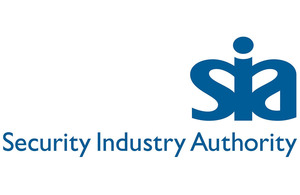Bournemouth company director prosecuted for supplying illegal security to sports bar
Press release
On 24 August 2022, a security firm and its director were prosecuted at Poole Magistrates’ Court for supplying unlicensed security to a Bournemouth sports bar.

Company director Terence Macartney, from Wareham, pleaded guilty and was fined £415. He was also ordered to pay court costs of £1,529 plus a victim surcharge of £42. A guilty plea was also entered for Macartney’s business, Maxim Security Ltd. The company was fined £1,000 and ordered to pay court costs of £1,529 plus a victim surcharge of £100. A manager from Maxim pleaded not guilty to supplying illegal security and has elected to be tried in a crown court.
On 10 December last year Security Industry Authority (SIA) investigators, accompanied by Dorset Police licensing officers, visited a Bournemouth sports bar while carrying out routine licence inspections. They found two men working as door supervisors, one of whom proved that he was appropriately licensed by the SIA. The second man was unlicensed and denied that he was working as door supervisor. He pleaded not guilty and will appear again before Poole Magistrates’ Court in January 2023 for a trial hearing.
SIA investigators checked the signing-in book, which revealed that the man had also previously worked at the venue on 15 and 16 October. The owner of the venue confirmed to SIA investigators that Maxim Security Ltd were their security supplier.
On 16 May 2022 SIA investigators interviewed Terence Macartney under caution. He confirmed that as director of Maxim he had overall responsibility for the supply of security. On 25 August Terence Macartney resigned his role as director of the business.
Mark Chapman, one of the SIA’s criminal investigation managers said:
Maxim Security and its director Terence Macartney have been prosecuted and received a significant sentence. Mr Macartney has been handed a criminal record and his company fined, suffering reputational damage as a result. The role of the SIA licensing regime is to keep people safe, and this is particularly important in the run-up to the festive season when bars and clubs are busier. The public should be assured that the security appointed to protect them are suitably trained, qualified and licensed to do so.
Notes to editors:
- By law, security operatives working under contract must hold and display a valid SIA licence
- Read about SIA enforcement and penalties
- The offences relating to the Private Security Industry Act (2001) that are mentioned above are as follows:
- Maxim Security Ltd: Section 5 – deploying unlicensed guards
- Terence Anthony Macartney: Section 5 via section 23 – deploying unlicensed guards
Further information:
- The Security Industry Authority is the organisation responsible for regulating the private security industry in the United Kingdom, reporting to the Home Secretary under the terms of the Private Security Industry Act 2001. The SIA’s main duties are the compulsory licensing of individuals undertaking designated activities and managing the voluntary Approved Contractor Scheme.
- For further information about the Security Industry Authority or to sign up for email updates visit: www.gov.uk/sia. The SIA is also on LinkedIn Facebook (Security Industry Authority) and Twitter (@SIAuk).
Published 5 September 2022
